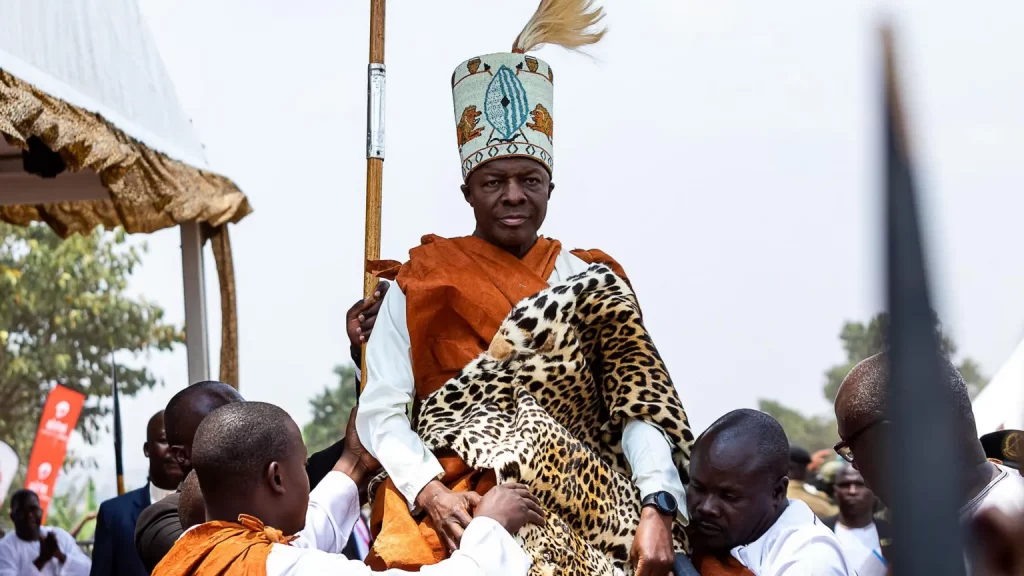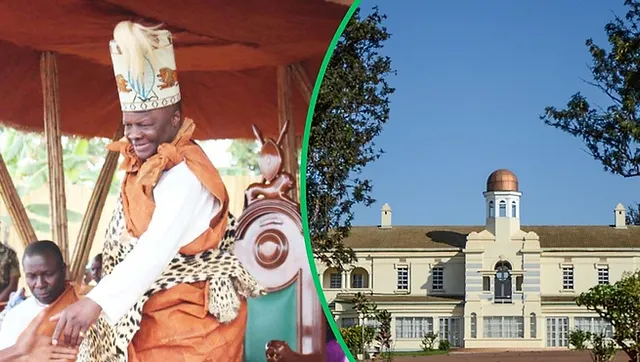The Namibian government has firmly rejected a request to extend the visa of King Mutebi II of Buganda, Uganda’s largest traditional kingdom, who has been receiving medical treatment in the country since April. This decision has thrust into the spotlight complex diplomatic issues and raised questions about the delicate balance between traditional African monarchies and modern state policies.

King Mutebi II’s stay in Namibia, initially intended for medical treatment for an undisclosed condition, has extended beyond the standard 90-day visa period. The medical center where he has been staying sought an extension, but Namibian authorities stood firm on their immigration laws. A ministry official, quoted by the state broadcaster NBC, stated, “Having checked the records, I wish to inform you that the request for an extension is declined,” emphasizing Namibia’s commitment to upholding its immigration policies, even for high-profile individuals.
The king’s prolonged presence in Namibia has been a source of controversy and diplomatic tension. Ugandan activists staged protests at Namibian diplomatic missions, including the High Commission in the UK, demanding transparency about the king’s whereabouts and health status. Some even raised alarming suspicions of kidnapping, calling for Namibia to disclose information about his condition.
Tensions escalated when a group of Buganda traditional chiefs traveled to Namibia without authorization to inquire about the king’s health. This unsanctioned delegation was briefly detained and questioned by Namibian officials, further complicating the already delicate situation. The incident drew a sharp rebuke from Uganda’s President Yoweri Museveni, who criticized his citizens for “embarrassing Uganda by opportunistically trying to show how much they are for the Kabaka [king].”
The diplomatic fallout from this incident has been significant. Namibian authorities reportedly expressed displeasure over the protests at their diplomatic missions, while Uganda has taken a conciliatory stance. Uganda’s Foreign Minister Henry Oryem Okello stated that Uganda would respect Namibia’s decision, acknowledging the need to abide by Namibia’s rules and ways of life.

This situation highlights the complex relationship between traditional African monarchies and modern state structures. While Buganda is Uganda’s largest ancient kingdom, it, like other traditional kingdoms in the country, holds no political power but remains culturally influential. The incident raises important questions about how traditional monarchs are recognized and treated in international contexts and underscores the need for diplomatic sensitivity when dealing with matters involving traditional leaders.
As King Mutebi II prepares to return to Uganda following Namibia’s decision, several uncertainties loom. The impact of his return on his ongoing medical treatment remains unclear, as does the long-term effect of this incident on Uganda-Namibia relations. The reaction of the Buganda people and wider Ugandan public to these events may also influence future interactions between the kingdom and the state.
This episode serves as a poignant reminder of the intricate interplay between traditional African institutions and modern state policies. It highlights the need for clear protocols in handling situations involving traditional leaders in international contexts. As Africa continues to navigate the coexistence of ancient monarchies and contemporary governance structures, incidents like this underscore the importance of cultural sensitivity, diplomatic finesse, and respect for both tradition and law in international relations.



